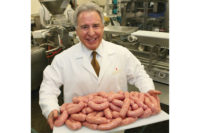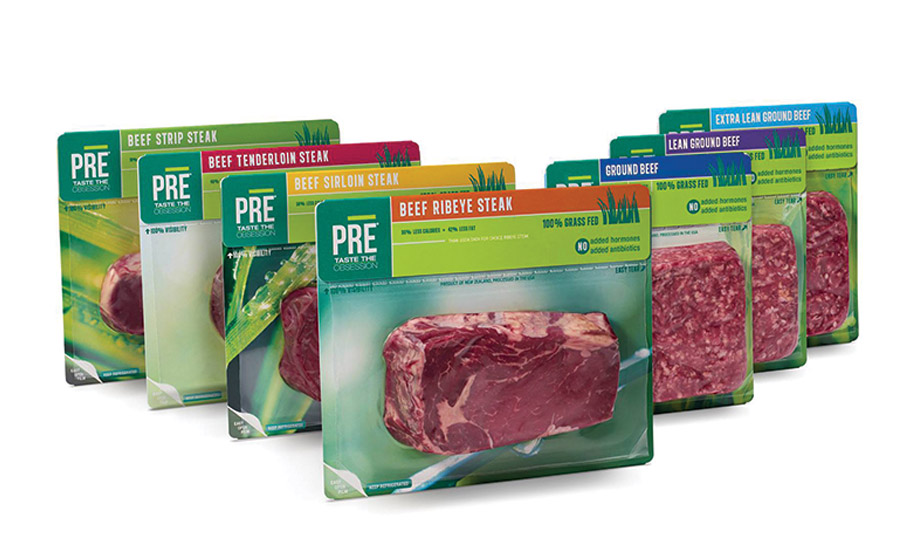Delivering on a brand promise
Pre Brands may not be a meat company, but its grass-fed beef has consumers flocking to stores.

PRE Brands has a large catalog of grass-fed beef products.

PRE Brands is not a meat company, but sees itself as a consumer products company.


Sometimes a change of perception is required to find a place in the consumer marketplace. If you see yourself as a meat company, you put your meat products out against all the competition and hope for the best. PRE Brands has a large catalog of grass-fed beef products and the expertise that comes from years of experience. However, PRE Brands is not a meat company.
“We view ourselves as a consumer products company,” says founder and CEO Lenny Lebovich. He got involved in the meat industry more than a decade ago when, as an investment banker, he helped a friend whose family owned a long-standing meat processor in Chicago. Through his time with the company, he helped acquire and ran a business that he converted into a grass-fed beef company. Seeing a need in the marketplace, he sold his interest back to the family and started with a clean slate and a clear mission.
“I realized was that there was an opportunity to build a consumer-facing business in what I think is otherwise a very supplier-minded, commodity-minded industry,” Lebovich says.
Lebovich saw that the better-for-you category was growing, but there needed to be a product that helped satisfy the consumers’ real desire — something that tasted good.
“We as a business prioritize delivery of taste on a consistent basis, and we manage to do that in a way that nobody else does,” he explains, adding that the issues of health and animal welfare are secondary considerations for most consumers.
“The secret sauce is that we deliver a great-tasting product to people who actually feel good about eating it, versus a feel-good but taste-compromised product that a lot of products in the better-for-you segment, meat included, require,” he adds. “When taste compromise is required, you’ve basically cut your potential in half.”
PRE Brands focuses on top-quality grass-fed steaks and grinds. The company launched in its Chicago home, working with smaller retailers who were more receptive to trying something new, and growing based on those initial successes. PRE Brands now distributes to eight states in the Great Lakes region and approximately 300 stores.
Since it is not a meat company, PRE Brands doesn’t own plants, equipment or cattle.
“We sign agreements with best-of-breed partners, and we work with them to execute our proposition,” Lebovich explains. “We don’t want to do anything that stands in the way of serving consumers as well as we possibly can.”
As PRE Brands enters into a new relationship with a retailer, it does so with a full plan of action already in place. The exact approach may depend on the market and the company’s level of penetration there, but in-store sampling is typically a winning strategy. The company uses its own people for those events instead of contract workers or store employees.
“We have a brigade of people across the country that know how our brand, know our product, know everything they need to interact very comfortably and at a detailed level with consumers,” Lebovich says. “They’re phenomenally successful building that awareness. Retailers are typically quite pleased with the performance we generate for them very quickly.”
Lebovich argues that there is not as much brand awareness in the meat sector as there is elsewhere, so a small company has a chance to make a favorable impression with consumers, if it thinks like a consumer products company and not a processor.
“As long as companies focus on truly solving consumer needs and not trying to sell what they’ve got to hopefully address consumer needs, I think there is a tremendous opportunity,” he says.
Looking for a reprint of this article?
From high-res PDFs to custom plaques, order your copy today!










